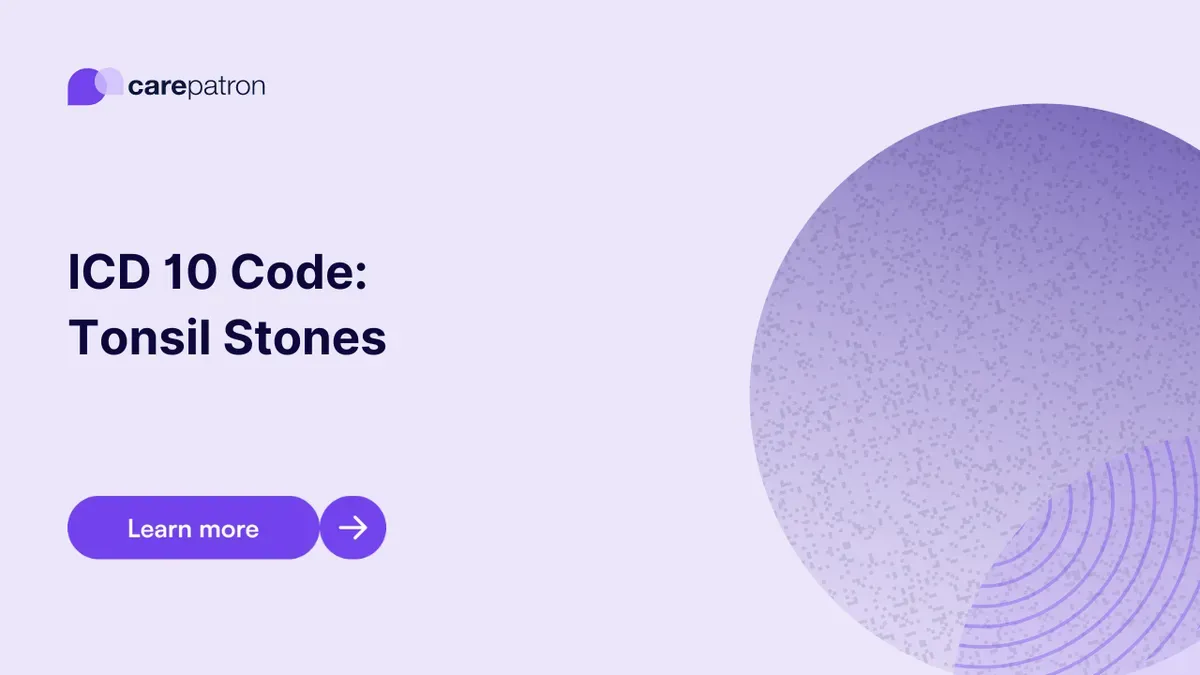
Tonsil Stones ICD-10-CM Codes
Discover the specific ICD-10 codes for diagnosing tonsil stones, including J35.8, J35.9 & J03.90. Learn about their clinical descriptions and applications.
Use Code
Commonly asked questions
These codes should be used when a patient presents with symptoms suggestive of tonsil stones or when tonsil stones are discovered during a routine exam or other medical procedure.
Common treatments include at-home remedies such as gargling with warm salt water, manual removal, antibiotics, and, in severe cases, surgical removal of the tonsils (tonsillectomy).
A diagnosis code for tonsil stones signifies that the patient has been diagnosed with this condition. The specific code provides more detail about the nature of the condition, such as whether it is chronic or acute.
EHR and practice management software
Get started for free
*No credit card required
Free
$0/usd
Unlimited clients
Telehealth
1GB of storage
Client portal text
Automated billing and online payments
